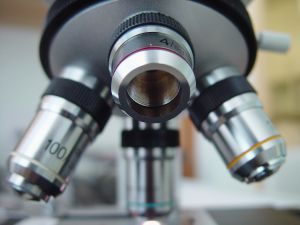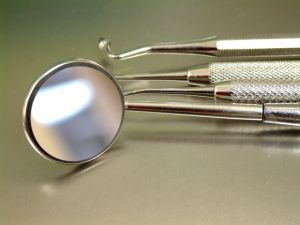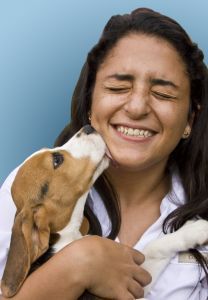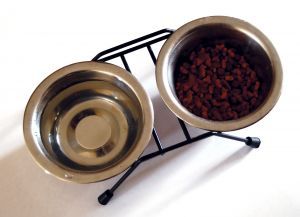Services
Our hospital strives to make your visit to the vet enjoyable for both you and your pet!
We offer a number of services to help maintain and maximize the heath and well-being of your furry companion. Please contact us to book an appointment through our reception desk so we can efficiently and effectively help you at your next visit.
Diagnostic Testing

What diagnostic tests are available?
To ensure a proper diagnosis we perform a number of in-house laboratory diagnostic tests including; fecal examination, complete analysis of urine, complete blood counts, electrolyte analysis and serum chemistry panels. As well, we offer in-house digital and standard radiography, ultrasonography and endoscopy.
We also utilize services offered by external veterinary laboratories enabling us to run any needed diagnostic tests with rapid turn-around times in order to initiate specific treatment once we receive and interrupt the results.
Laboratory tests are used to find out if your pet is healthy or hiding disease. it can be difficult for owners to recognize the early signs of disease. Testing and monitoring helps us to choose the right medication for your pet while ensuring effectiveness and safety.
Dentistry
Do Pets Really Need Dental Care?
Yes! Pets, like people, need regular dental care. Studies have shown that greater than 85% of dogs and cats over 3 years of age have some form of dental and/or gum disease. Imagine not brushing your teeth or having them cleaned for 3 years!
How Is Dental and Gum Disease Prevented?
Dental and gum disease in cats and dogs can be prevented with routine dental cleanings, regular examinations, and a healthy diet. All of these can significantly improve your pet's quality of life and extend their longevity.
Unfortunately, there are some factors that contribute to tartar build-up that are beyond our control. These factors are why some pets need more dental care than others. Factors beyond our control include:
- How much a pet chews its food
- How much saliva a pet produces
- The shape, size and placement of the teeth
- The type of bacteria in the mouth
- the conformation of your pet's mouth
- your pet's genetic make up
What can you do?
Routine brushing of your pets teeth at home and when needed, a dental examination, cleaning, and dental procedure provided by your veterinary care team.

Wellness Examination

Physical Examination
One of the best ways to keep your pet healthy is to have an annual physical exam!
Changes in your pet's health often go unnoticed by their owner and may not be obvious. They may be subclinical; which means that your pet might appear or act normally while changes are happening internally.
We will perform a thorough physical examination of your pet to listen, look and feel for any subtle changes in their physical health. As animals grow older, they become more susceptible to developing health problems, many of which can be managed through simple changes in diet and lifestyle.
Book an appointment to find out how to help your pet live a long and healthy life.
Vaccination for your pet
Vaccination is the for prevention of common contagious diseases!
Vaccines are designed to give an individual's immune system a memory. If our white cells remember an invader like a virus or a bacteria, the chances of that organism causing trouble in the future is greatly reduced. Our clinic vaccinates according to disease risk and the needs of your pet. Because of this approach, your animal's vaccines can be tailored to your animal's health and lifestyle.
Preventive Care Blood Testing helps us keep healthy pets healthier for longer!
Preventive care blood testing provides a good overview of your pet's health. It allows us to identify organ insufficiencies and diseases early on. A simple change in diet, the addition of a supplement or the right medication can often be enough to slow down, stop or even reverse existing damage well before your pet is noticeably sick.
Medicine
What Is Medicine?
Medicine refers to the examination, diagnoses and treatment of a disease or illness through non-surgical means.
Typical diseases that are treat medically include:
- Diabetes
- Hypothyroidism and hyperthyroidism
- Cushing's disease
- Addison's disease
- Inflammatory Bowel Disease (IBD)
- Cancer
Veterinary medicine is rather unique compared to other medical professions since veterinarians are extensively trained to deal with illnesses that affect all of the tissues and organs in your pet's body. We know about it from head to tail, inside and out!

Nutrition

Have questions about what your pet should be eating?
Talk with your veterinarian!
Proper nutrition is important for maintaining your pet's health and well-being. Decisions regarding your pet's nutrition should not be made without first consulting your veterinarian. Don't be fooled by marketing or manufactures that do not have testing and substance behind their claims. We will help you make an informed decision regarding your pet's choice of diet given their age, breed and health status.
Bring your questions with you to your next appointment!
Surgery
Surgical Procedures
Surgery is generally divided into soft tissue surgeries and orthopedic surgeries. Orthopedic surgeries focus on bones, tendons, and joints (e.g. fracture repair), while soft tissue surgeries encompass abdomen, thorax and skin (e.g. wound repair).
The most common surgeries performed in a veterinary hospital are elective soft tissue surgeries such as spays and neuters.
What We Offer
Veterinary surgery has undergone a tremendous revolution. With recent advances in equipment and instrumentation, anesthesia and pain management, veterinarians are now able to offer exciting and safer surgical treatment options.
Pre-Anesthetic Blood Work
It is important that you know that for any anesthetic procedure, pre-anesthetic blood work is recommended for all patients. Such blood testing is performed to check the kidneys, the liver, blood sugar and protein levels. As well, red and white blood cell information is determined.
All of the blood work parameters allow us to minimize the risks to your pet that can be associated with anesthesia. More extensive blood testing is performed in our more senior patients for the main reason of the safety of your pet.
Intravenous Fluids
Intravenous fluids may be administered during anesthesia. Many drugs used for general anesthesia tend to cause decreases in blood pressure. Intravenous fluids combat this decrease.
In addition, if there are any unforeseen adverse reactions under anesthesia, an intravenous catheter allows immediate intravenous administration of potentially life saving medications.

Parasite Prevention

Many parasites are zoonotic agents.
What is zoonosis?
Zoonosis is an infectious disease that can be transmitted from pets to people, and vice versa. Regular veterinary visits, preventative vaccinations, regular deworming, and good hygiene can go a long way in helping to prevent disease!
Some of the common parasites that animals get, especially kittens and puppies, include hookworm infections, roundworm infections and tapeworm infections.
For more information on common zoonosis, clinical symptoms, how they are transmitted and how to treat and prevent disease, schedule an appointment to talk with your veterinarian.
Make sure your family is protected!


